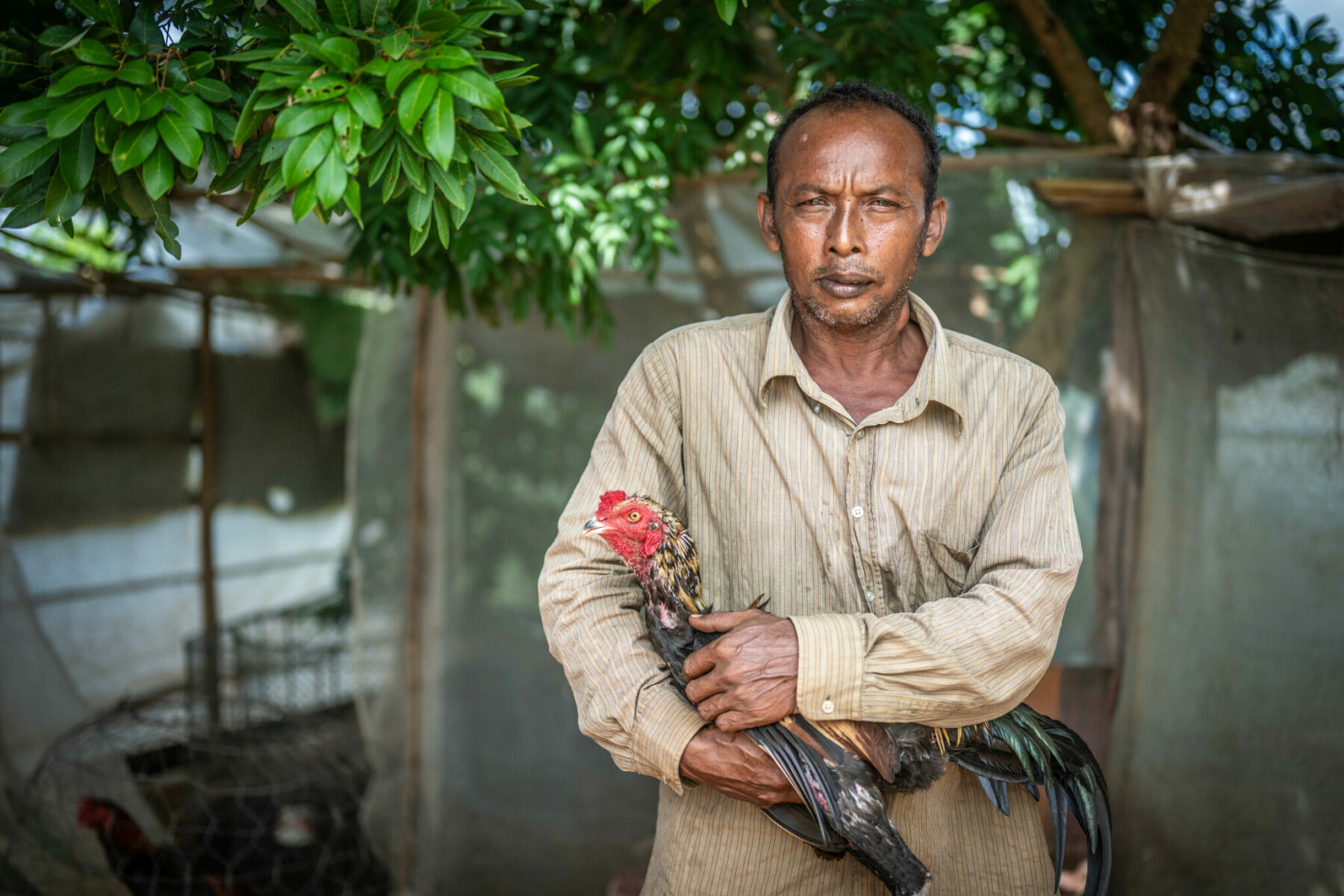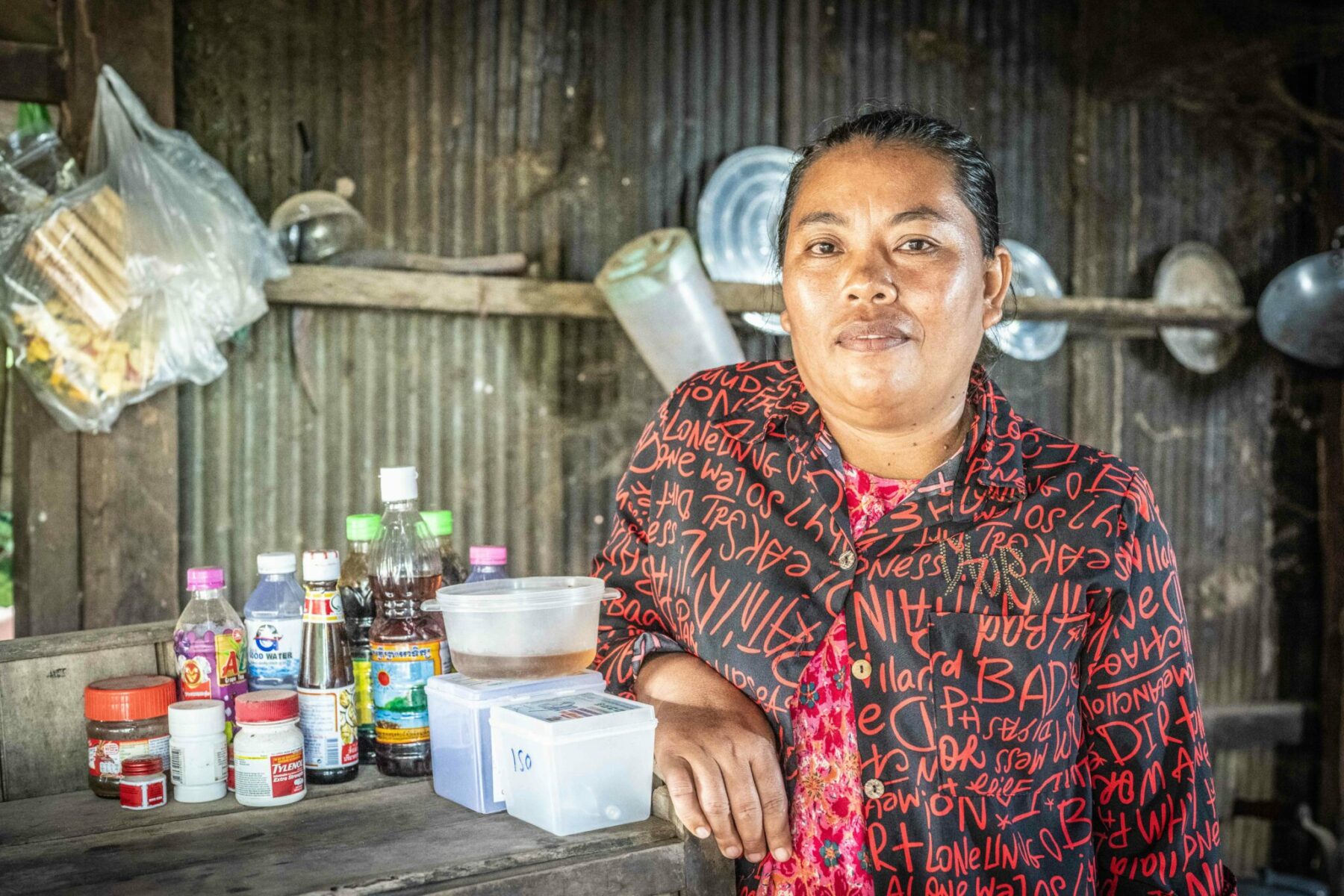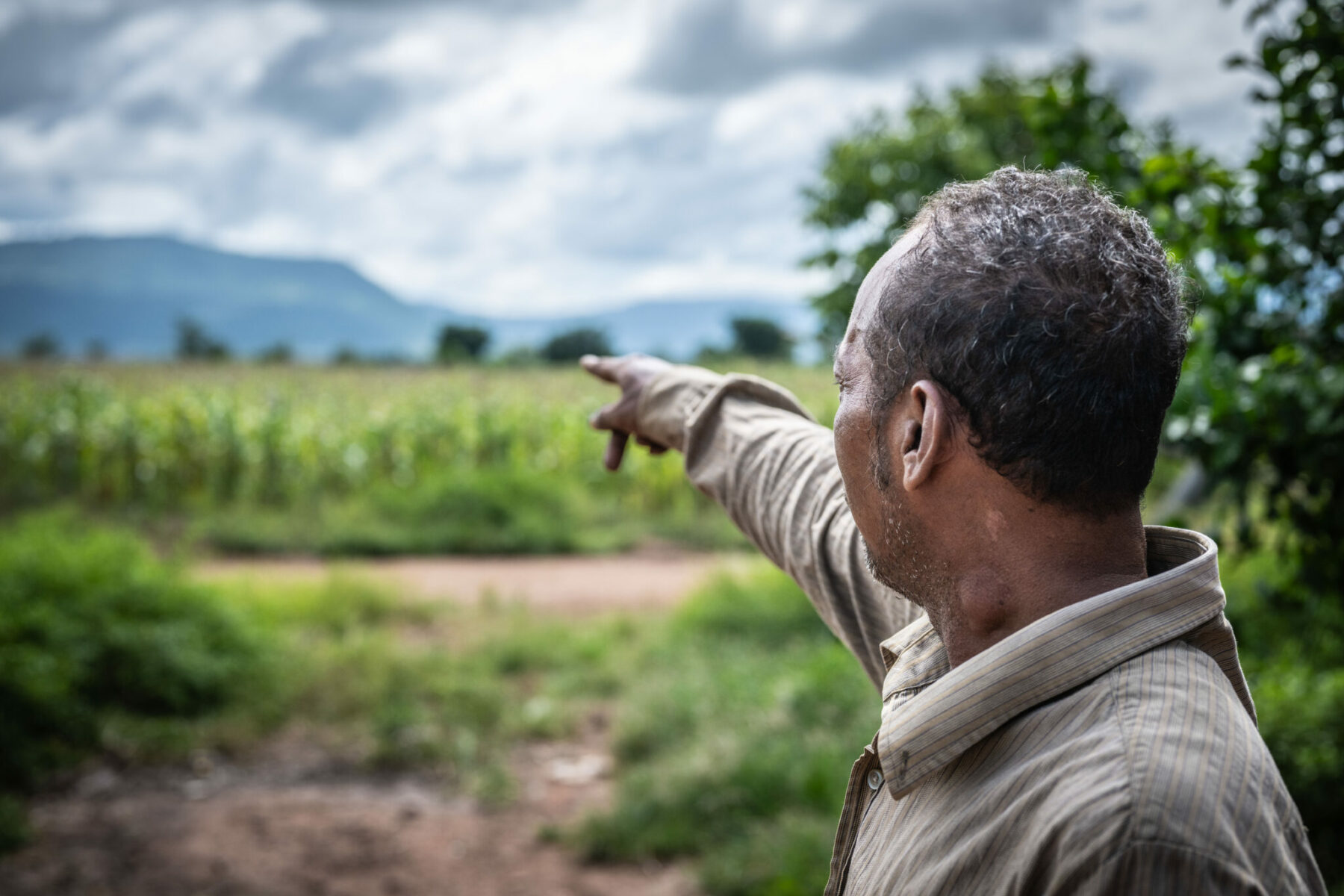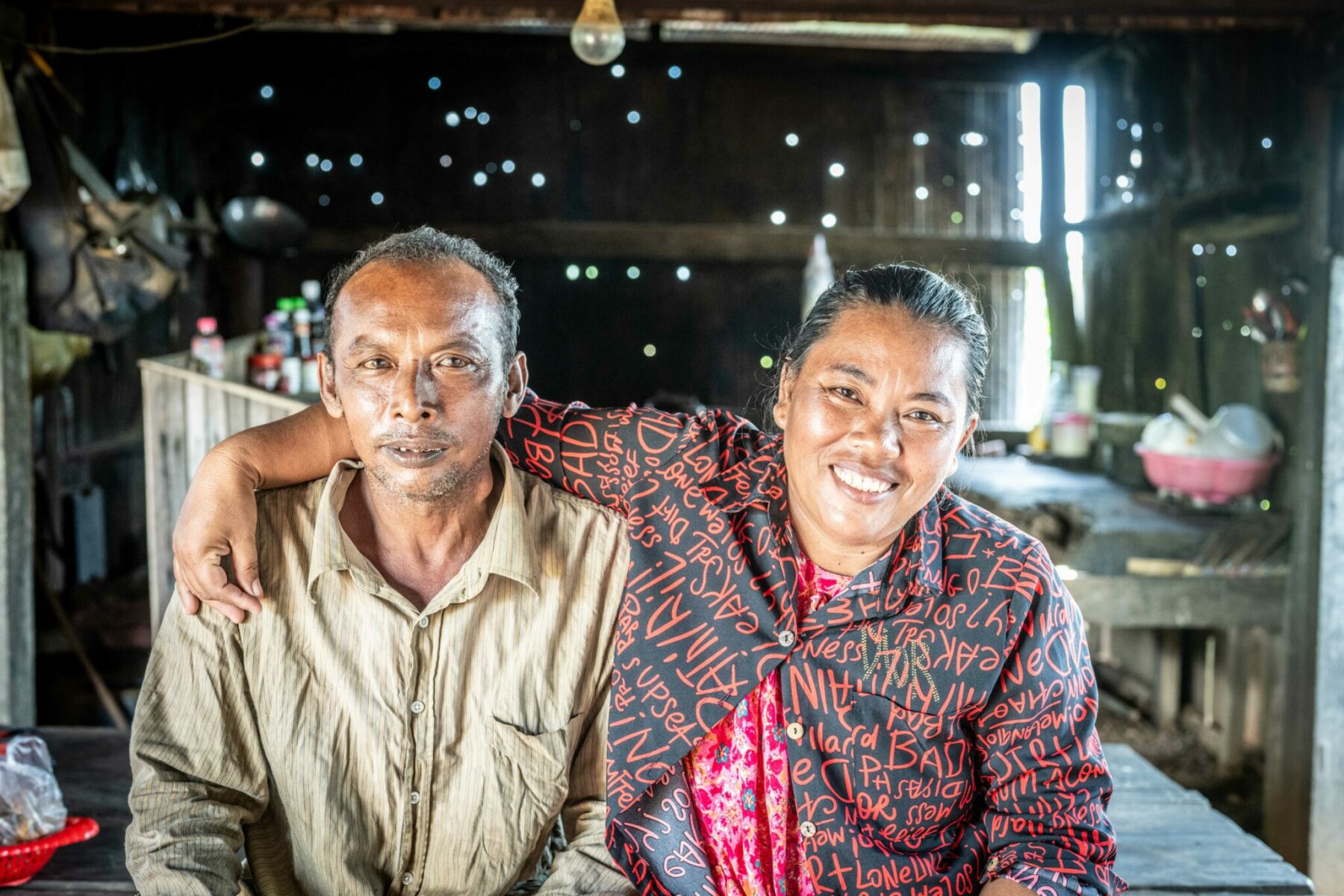Mon and Souen: Farming in a Minefield, Hoping for Safety
Mon and Souen have farmed their two hectares of land since 1998, knowing all along that they were working in a minefield. With no safer land to turn to, they planted rice and corn among explosive remnants of war, raising two children and navigating life with constant fear.
Thanks to APOPO and partners, their fields, which were once scattered with anti-tank mines and unexploded ordnance, are being cleared. Their story shows the difficult choice many Cambodian farmers face between safety and survival.
In their own words, Mon and Souen share the risks they’ve lived with and their gratitude for a safer future.
Our names are Mon and Souen. I am 50 years old, and my wife is 44. We are farmers, growing rice and corn on two hectares of land, which is right behind our house. We sell most of the corn, while the rice helps feed our family.

We have been living here since 1998. Before that, we lived in Battambang province, though Souen is from another district there. We met while farming, working together in the fields, and eventually, we got married in 2010. In 2015, we moved into the house where we live now.
All of our farmland is within the boundaries of a minefield. We have no other choice but to work the land, even though we are scared. If we don’t work, we don’t eat. Both of us work in the fields, always aware of the huge risk.
When we first arrived, we found an anti-tank mine and some improvised ordnance scattered across our land. While creating paths for cassava, we often uncovered UXO. Whenever we found something, we would call CMAC or the local authorities to remove it. When we bought this land, we knew it was dangerous, but we had no other options. Many others avoided it out of fear, but we needed it to survive.
We have two children, aged 9 and 12. They study far from here and stay with their grandmother, so we only see them every one or two months. We made this decision because, during the rainy season, the water rises too high for them to cross safely, and the village school is very far.
When they come home, we still worry about landmines. They are close to our house, and kids are naturally curious. We have taught them never to touch anything suspicious and always to tell an adult, but we have never left them home alone because of the risk. We always made sure they stayed with a neighbor.
We have heard of accidents. About 500 meters from here, people working in a large field hit a landmine with a tractor. The machine was damaged, but fortunately, no one was hurt.

Even with all the dangers, we want to stay here. We have a good relationship with our neighbors and the land is fertile. We just want it to be safe. Some areas are still too risky to use. Some parts of our land remain covered in thick bush because it is too dangerous to clear. But soon, thanks to APOPO, we know it will be safe.
Over the years, we have found more than 100 explosive remnants of war, landmines, UXO, and improvised ordnance. Recently, though, the numbers have decreased.
We see the APOPO and partner teams working every day, and we know how hard and dangerous their job is. We are very grateful for them.
When APOPO first arrived, people were amazed. Many of our friends couldn’t believe that rats could detect landmines. At first, we thought APOPO was just releasing many rats into the minefields, and we didn’t understand how it worked. But later, we learned that these rats are specially trained to smell explosives, that they are too light to trigger the landmines, and that they work alongside humans who then safely remove the mines from the ground.
Everyone was so relieved. We no longer had to worry constantly about our children, our animals, or even just walking to collect firewood or work the fields. The closest landmine we found was only 10 meters from our house. Once, one of our children found a landmine near a tree and came running to tell us. We were terrified. Whenever something like this happened, we would immediately talk to the village chief, neighbors, and friends before reporting it to the authorities for removal.

We are so happy and grateful for what APOPO are doing. Soon, we will be able to walk, work, and live without fear. Our children will finally be safe.
We also want to thank all the supporters and donors of this project. We hope they continue supporting similar efforts in other parts of the world where people are still suffering from the aftermath of war. The war ended long ago, but its effects continue to impact our daily lives. Now, thanks to APOPO and organizations like it, we can finally look forward to a safer future.

